Can dry eyes cause blurry vision?
Yes! Blurry vision is one of the symptoms of Dry Eye Syndrome. This can occur alongside gritty, red, watery, and itchy eyes.[1] In this blog, we’ll be sharing why dry eyes can cause blurry vision and how this can be treated. Read on to find out more.
Does having dry eyes affect vision?
Dry eyes can lead to blurry vision and even make your eyes sensitive to light.[1] Blurry vision is when you can’t see the fine details of the object you’re looking at, making it look hazy.[2] In fact, in a recent study published in the National Library of Medicine, 58% of Dry Eye patients said they had blurry vision.[3] This shows that if you experience this, you’re not alone.
On the other hand, light sensitivity or photophobia is when light causes you pain.[4] This can cause squinting, eye strain, headaches and dizziness.[5] In another study published in the National Library of Medicine, 75% of people over 50 with dry eyes suffered from photophobia.[4] Although you may not be aware of this symptom, it is certainly popular.
Both blurry vision and photophobia can be serious, so please see a GP if you experience these.
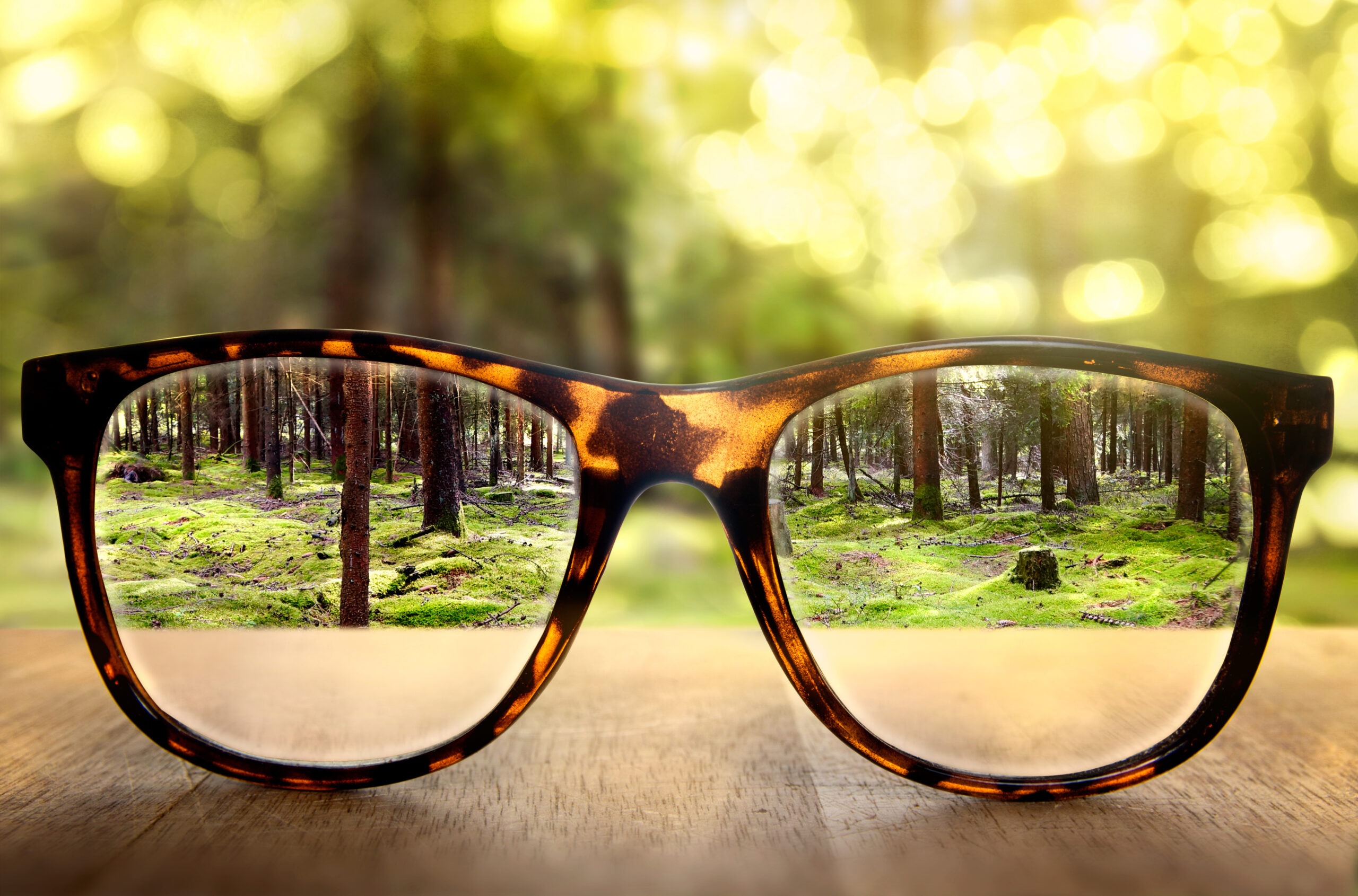
Why do dry eyes cause blurry vision?
You can get dry eyes if you don’t make enough tears or the tear film dries up too quickly.[1] You need a normal tear film to be able to see clearly. Because Dry Eye Syndrome affects the tear film, this can affect your vision.[6]
Dry eyes can also impact your cornea. The absence of tear film affects the cornea’s ability to focus light on the lens, which can cause blurry vision. In extreme cases, the cornea can even become infected or develop abnormal blood vessels that interfere with vision.[7]

Why do I have dry eyes and blurry vision when I wake up?
There are many reasons why you may have dry eyes and blurry vision when you wake up. Here are some of them:
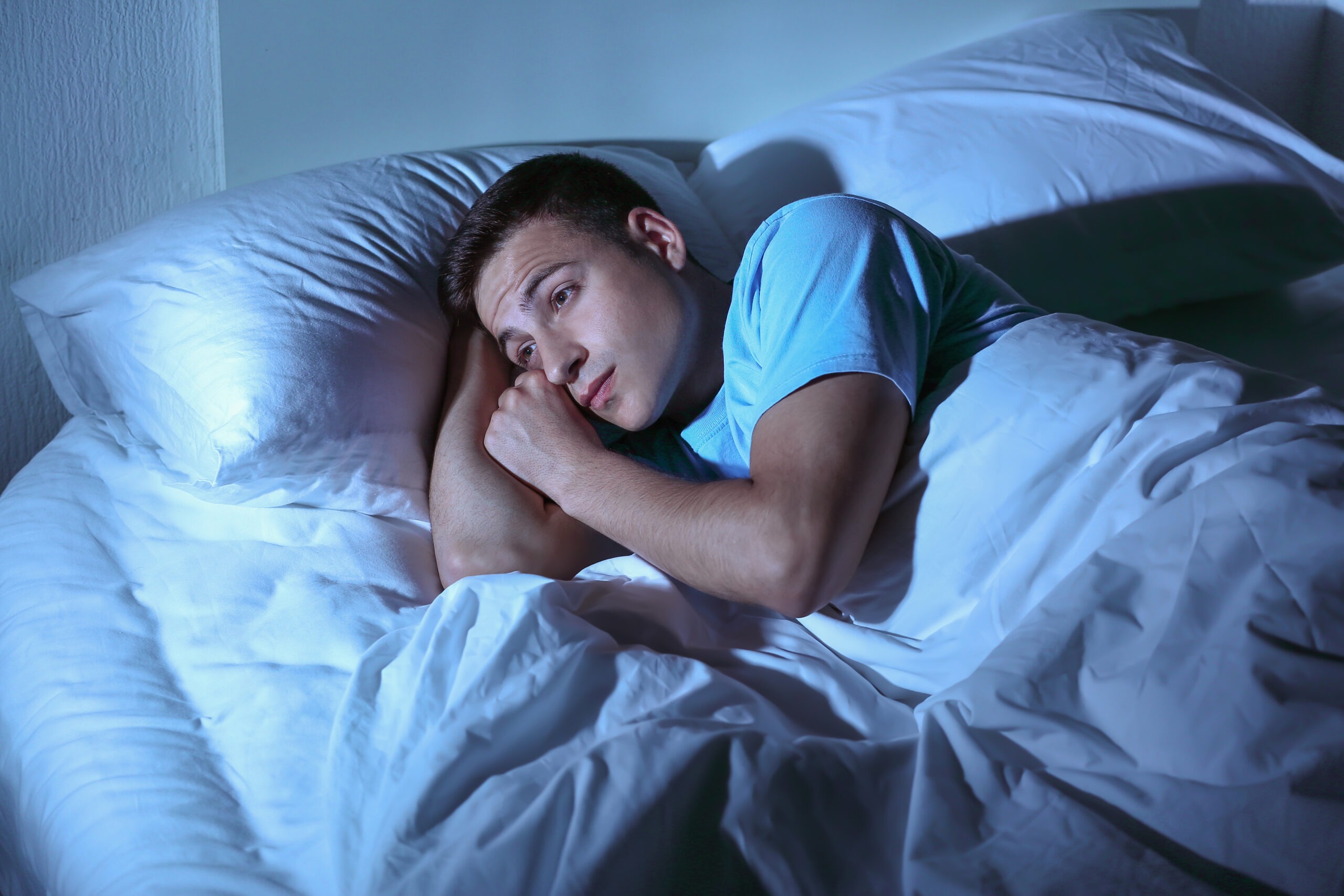
1. Nocturnal lagophthalmos
One of the reasons for dry eyes and blurry vision when you wake up is nocturnal lagophthalmos. This is the medical term for sleeping with your eyes open, which up to 20% of people do.[8] When we sleep with our eyes open, this dries the tear film.[9] This causes dry eyes and blurry vision. Read more about this condition in our blog: Nocturnal Lagophthalmos and Dry Eye

2. Reduced tear production
Did you know when you wake up, tear production can drop temporarily? This can make Dry Eye symptoms, like blurry vision, much more noticeable first thing in the morning.[10]
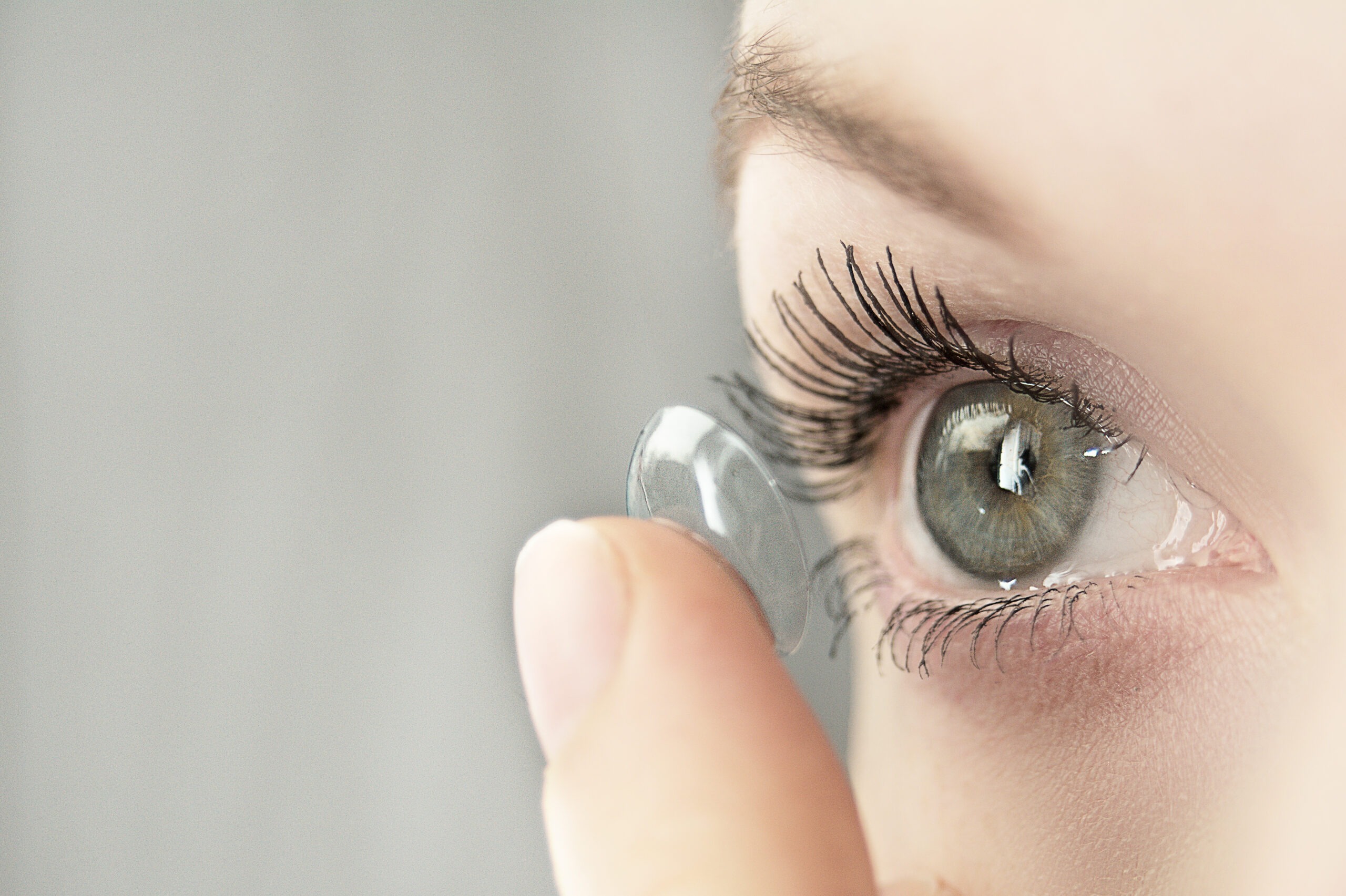
3. Contact lenses
Contact lenses can cause your Dry Eye to flare at the best of times. The presence of the lens on the cornea limits oxygen flow into the eye, and oxygen is necessary to develop natural tears.[11] If you forget to take your contact lenses out before bed, it’s common to wake up with blurry vision as the effects take place. Read our blog for more tips: How to Manage Dry Eye If You Wear Contact Lenses
For more information about the effects of Dry Eye on your body at night, visit our blog: 10 Tips to Ease Dry Eye at Night

Is blurry vision permanent with dry eyes?
If your Dry Eye is treated correctly, your blurry vision symptoms should ease. However, if left untreated, severe dry eyes can ultimately lead to vision loss.[12] For this reason, you should always visit a healthcare professional if you are suffering from dry eye symptoms.
How do you treat blurry vision from dry eyes?
Finding the right treatment for your dry eyes and blurry vision can be difficult. To help, we’ve listed some of the ways that you can treat your dry eyes.

1. Eat healthily
Consuming the right vitamins can make a positive impact on your dry eyes. You should consider adding vitamins to your diet like Vitamin A, Vitamin B, Vitamin C, and Vitamin E. Each of these has health benefits, from lubricating your eyes to maintaining a functioning tear film.[13] For more information on this, visit our blog: 6 Vitamins for Dry Eyes

2. Reduce your screen time
Computer vision syndrome can occur if you spend long periods looking at a screen. This can cause eye problems including blurred sight and double vision.[14] To combat this, consider spending less time on your phone or laptop. If this is unavoidable for purposes such as work, follow the 20:20:20 rule. Every 20 minutes, look at something 20 feet away for 20 seconds.[15] Learn more about this here: What is Computer Vision Syndrome?
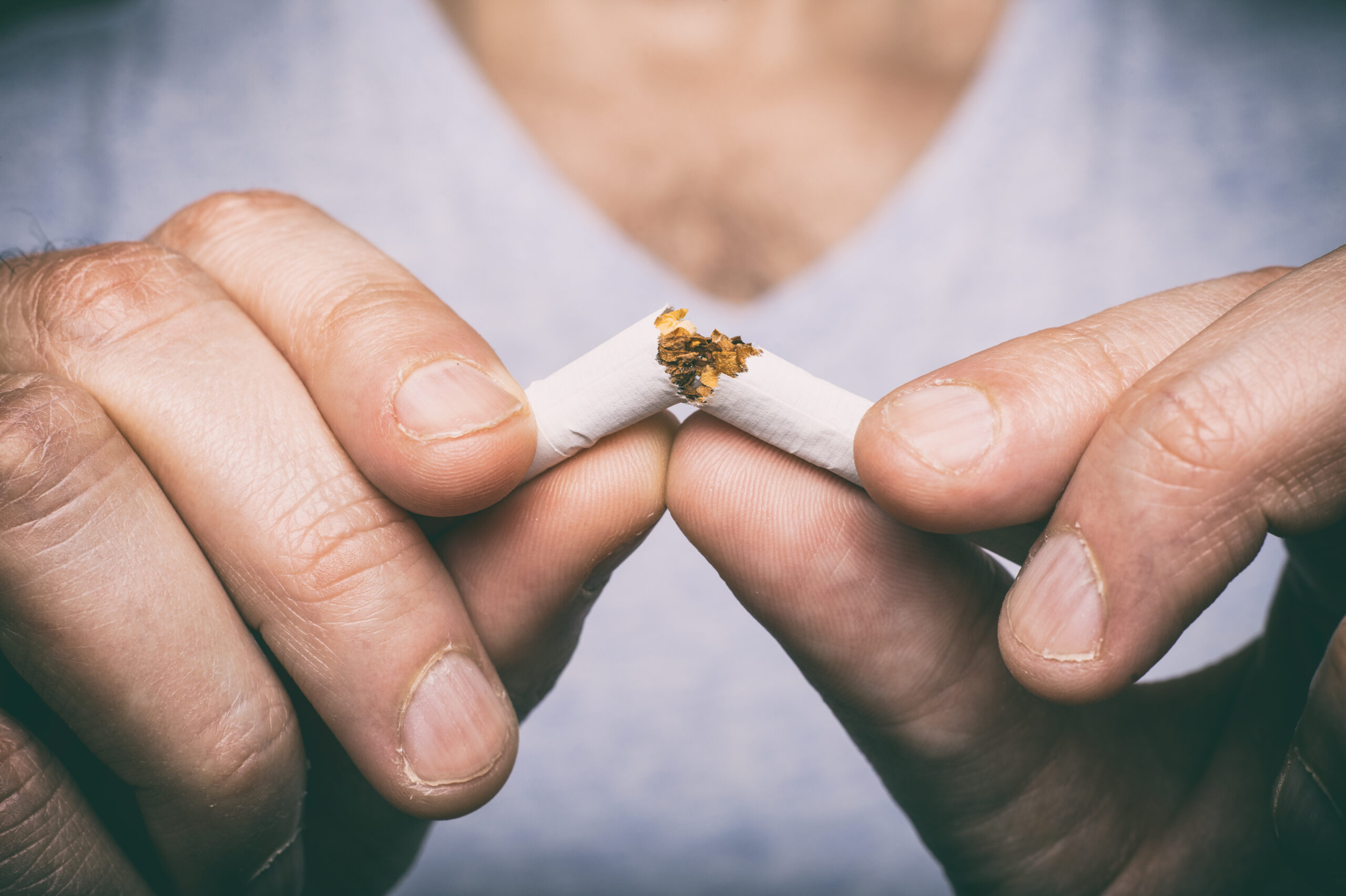
3. Stop smoking and drinking
Smoking and drinking can affect your dry eyes. Cigarette smoke can break down the tears on the eye’s surface.[16] Also, alcohol dehydrates the eyes and makes it difficult for the body to produce enough tears.[17] Both of these factors can lead to dry eyes and blurry vision. Find out more here: Is Drinking Alcohol Bad for Your Eyes?

4. Avoid blowing air in your eyes
It can be tempting to have your car heating blowing on you, especially in the colder months. However, this can reduce moisture in your eyes, leading to blurry vision. To avoid this, make sure that you always have heaters pointing towards your body, instead of your face.[18]
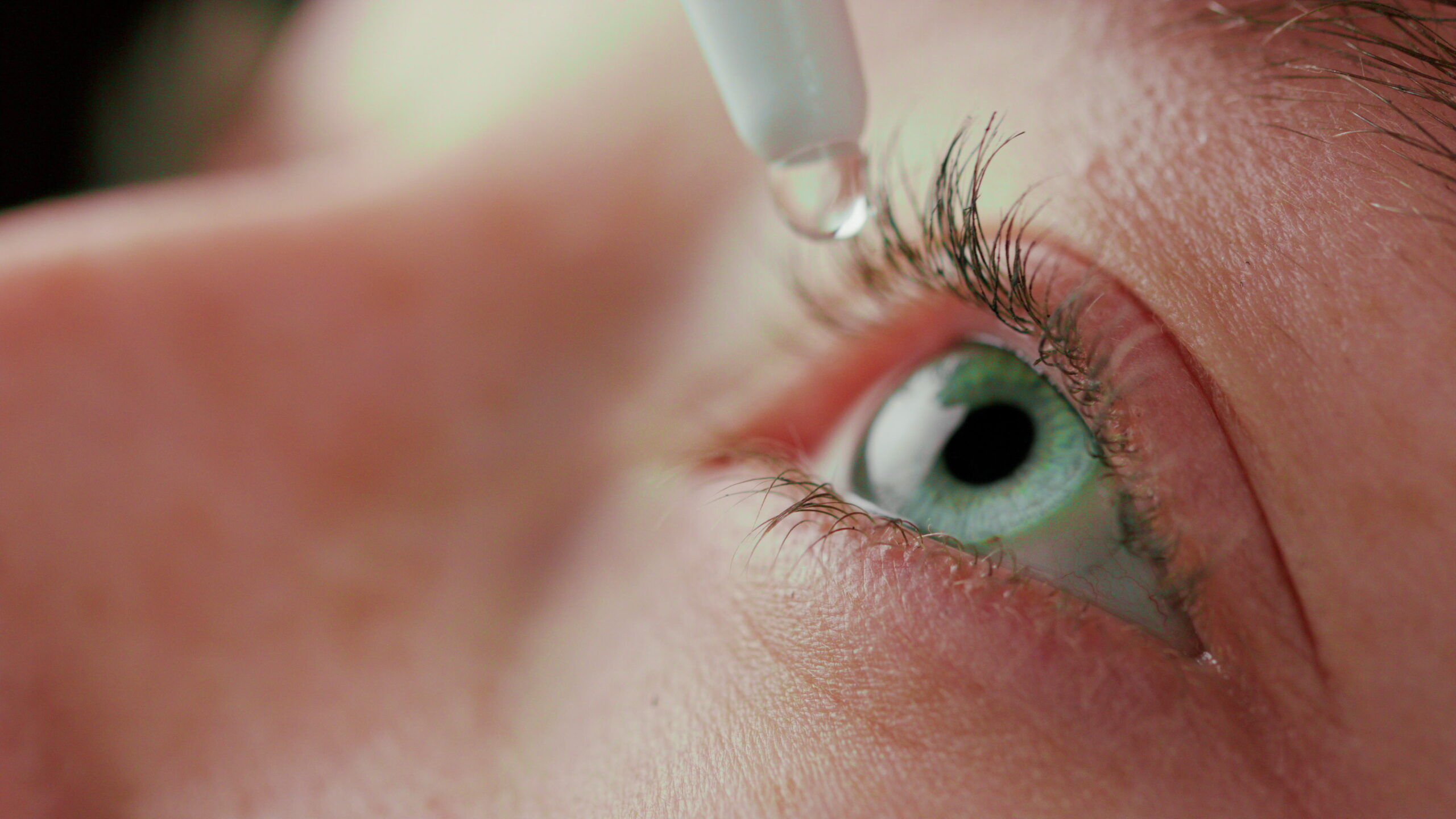
5. Use eye treatments
Every dry eye is different, so your treatment will be too! From eye drops to eye gels, there are a variety of ways to soothe your eyes. Visit our new online shop to find a solution for you: Visufarma Shop
In most cases, the best way to treat dry eyes, Also known as dry eye syndrome, is to use eye gel or eye drops.
VisuXL Gel® is a preservative-free smart gel lubricant for dry eye syndrome. It provides comfort in a bottle with it’s long-lasting lubrication properties giving 12-hour dosing with just one drop and is suitable for both day and night use.
VisuXL® is a preservative-free eye drop lubricant for dry eye syndrome. Due to its unique ingredients, VisuXL® will help you recover from eye surgery, an injury or persistent damaging dry eye.
VisuEvo® is a preservative-free eye drop that prevents excessive evaporation of the tear film. Its unique formula contains omega-3 essential fatty acids, Vitamins A and D and ultra-filtered phospholipids that facilitate tear film presentation and control evaporation.
All three products are contact lens-friendly and can be used for 180 days after opening.
Shop now
References
- NHS, ‘Dry eyes’, 06/12/2021. Accessed August 2023.
- Vision Express, ‘Blurred vision’. Accessed August 2023.
- Szczotka-Flynn LB, Maguire MG, Ying GS, Lin MC, Bunya VY, Dana R, Asbell PA; Dry Eye Assessment and Management (DREAM) Study Research Group. ‘Impact of Dry Eye on Visual Acuity and Contrast Sensitivity: Dry Eye Assessment and Management Study.’ Optom Vis Sci. 2019 Jun;96(6):387-396. Accessed August 2023.
- Galor A, Levitt RC, Felix ER, Sarantopoulos CD. ‘What can photophobia tell us about dry eye?’ Expert Rev Ophthalmol. 2016;11(5):321-324. Epub 23/08/2016. Accessed August 2023.
- Specsavers, ‘Photophobia (light sensitivity)’. Accessed August 2023.
- Cleveland Clinic, ‘Dry Eye’, 28/11/2022. Accessed August 2023.
- Smart Eye Care, ‘Are Dry Eyes a Serious Problem?’. Accessed August 2023.
- Benisek, A. ‘Can You Sleep With Your Eyes Open?’, WebMD, 11/08/2022. Accessed June 2023.
- Takahashi A, Negishi K, Ayaki M, Uchino M, Tsubota K. ‘Nocturnal Lagophthalmos and Sleep Quality in Patients with Dry Eye Disease’. Life (Basel). 2020 July 4;10(7):105. Accessed August 2023.
- Lee, Y. B., Koh, J. W., Hyon, J. Y., Wee, W. R., Kim, J. J., & Shin, Y. J. (2014). ‘Sleep deprivation reduces tear secretion and impairs the tear film’. Investigative Ophthalmology & Visual Science, 55(6), 3525–3531. Accessed August 2023.
- Specsavers, ‘Your guide to wearing contact lenses for dry eyes’. Accessed August 2023.
- Mayo Clinic, ‘Dry eyes’, 23/09/2022. Accessed August 2023.
- Lazarus, R. ‘Which Foods Help Dry Eyes’, Optometrists Network, 17/03/2021. Accessed August 2023.
- Nunez, K. ‘7 Ways to Ease Computer Vision Syndrome’, Healthline, 04/03/2021. Accessed August 2023.
- Marcin, A. ‘How Does the 20-20-20 Rule Prevent Eye Strain?’, Healthline. Accessed August 2023.
- Morgan Griffin, R. ‘Smoking and Dry Eye’, WebMD, 30/05/2023. Accessed August 2023.
- You, Young-Sheng, Qu, Nai-Bin, Yu, Xiao-Ning, ‘Alcohol consumption and dry eye syndrome: a Meta-analysis’, International Journal of Ophthalmology, 2016; 9(10): 1487–1492. Accessed December 2021.
- Lazarus, R. ‘8 Top Natural Ways to Stop Dry Eyes’, Optometrists Network, 25/11/2021. Accessed August 2023.




